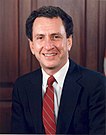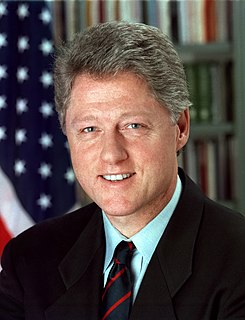
The 2004 United States Senate elections were elections for one-third of the seats in the United States Senate which coincided with the re-election of George W. Bush as president and the United States House election, as well as many state and local elections. Senators who were elected in 1998, known as Senate Class 3, were seeking re-election or retiring in 2004. This was the third consecutive election for Senate Class 3 where the Democrats failed to end up with a net gain. This also marked the first time since 1980 in which a presidential candidate from either party won with coattails in the Senate. As of 2018, these are the last elections held during a Presidential election year in which the Republicans made a net gain of seats.

Joseph Merrill Hoeffel III is an American author and politician. A Democrat, Hoeffel was a member of the United States House of Representatives from 1999 to 2005, representing Pennsylvania's 13th congressional district. He also served multiple terms on the Montgomery County Board of Commissioners, and from 1977–84, was a member of the Pennsylvania House of Representatives. A native of Philadelphia, he is a graduate of Boston University and Temple University School of Law.
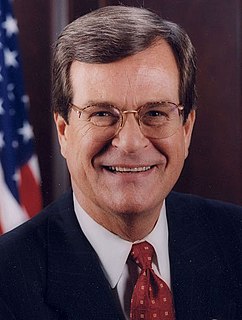
The 1998 United States Senate elections were held on November 3 and seen as an even contest between the Republican Party and Democratic Party. While the Democrats had to defend more seats up for election, Republican attacks on the morality of President Bill Clinton failed to connect with voters and anticipated Republican gains did not materialize. The Republicans picked up open seats in Ohio and Kentucky and narrowly defeated Democratic incumbent Carol Moseley Braun (Illinois), but these were cancelled out by the Democrats' gain of an open seat in Indiana and defeats of Republican Senators Al D'Amato and Lauch Faircloth. The balance of the Senate remained unchanged at 55–45 in favor of the Republicans. With Democrats gaining five seats in the House of Representatives, this marked the first time since 1934 that the out-of-presidency party failed to gain congressional seats in a mid-term election, and the first time since 1822 that the party not in control of the White House failed to gain seats in the mid-term election of a President's second term. These are the last senate elections that resulted in no net change in the balance of power.
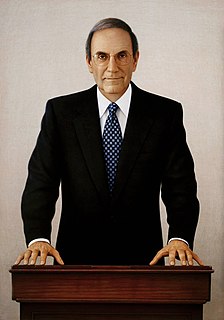
The 1992 United States Senate elections, held November 3, 1992, were elections for the United States Senate that coincided with Bill Clinton's victory the presidential election. Despite the presidential victory, Democrats had a net loss of a seat in the general elections, and only managed to break even by winning a seat in a special election.

The 1986 United States Senate elections was an election for the United States Senate in the middle of Ronald Reagan's second presidential term. The Republicans had to defend an unusually large number of freshman Senate incumbents who had been elected on President Ronald Reagan's coattails in 1980. Democrats won a net of eight seats, defeating seven freshman incumbents and regaining control of the Senate for the first time since January 1981. The party not controlling the presidency gained seats, as usually occurs in mid-term elections.

The 1982 United States Senate elections were held on November 2, 1982. They were elections for the United States Senate following Republican gains in 1980. A total of four seats changed hands between parties, and the lone independent, Senator Harry Byrd Jr., retired. Democrats made a net gain of one seat in the elections. A special election in 1983 was then held after the winner of Washington's 1982 election died at the beginning of the term.

The 1980 United States Senate elections coincided with Ronald Reagan's victory in the presidential election. Reagan's large margin of victory over incumbent Jimmy Carter pulled in many Democratic voters and gave a huge boost to Republican Senate candidates.
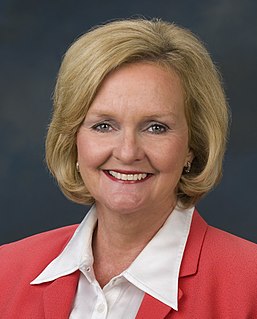
The 2006 United States Senate election in Missouri was held November 7, 2006, to decide who would serve as senator for Missouri between January 3, 2007, and January 3, 2013. The incumbent was Republican Jim Talent. Talent was elected in a special election in 2002 when he narrowly defeated incumbent Democrat Jean Carnahan. Carnahan had been appointed to the Senate seat following the posthumous election of her husband Mel Carnahan, who had died in a plane crash shortly before the 2000 election. Talent's Democratic opponent was Missouri State Auditor Claire McCaskill. Early on the morning of November 8, Talent conceded defeat to McCaskill, having faced considerable political headwinds. Talent lost the election with 47% of the vote, to 50% of the vote for McCaskill.
The Republican Party of Pennsylvania, commonly known as the PA GOP, is based in Harrisburg in the United States state of Pennsylvania. It is affiliated with the Republican Party of the United States.

Pennsylvania, like neighboring New Jersey, has swung from being a Republican-leaning state during much of the 20th century to a more competitive state in national presidential elections. Pennsylvania has backed the Democratic presidential candidate in every election since 1992 up until 2016, when it was won by Republican candidate Donald Trump. In 2008, Barack Obama won almost all of the Philadelphia suburbs. Statewide, John McCain won almost three times as many counties (48) as Obama (19), but Obama won the most populous counties and therefore won the popular vote for the state, carrying its 21 electoral votes.
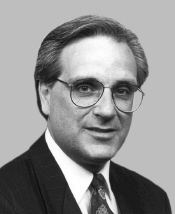
The 2000 United States Senate election in Pennsylvania was held on November 7, 2000. Incumbent Republican U.S. Senator Rick Santorum won re-election to a second term. As of 2019, this is the last time the Republicans have won the Class 1 Senate Seat from Pennsylvania.

The 2010 United States Senate election in Pennsylvania took place on November 2, 2010, during the 2010 midterm elections. Incumbent Republican-turned-Democrat U.S. Senator Arlen Specter ran for reelection to a sixth term, but lost in the Democratic primary to Joe Sestak. Republican nominee Pat Toomey then won the seat.

The 2004 United States Senate election in Pennsylvania was held on November 2, 2004. Incumbent Republican U.S. Senator Arlen Specter won re-election to a fifth term.

Pennsylvania held various elections on November 2, 2010. These include elections for a Senate seat, a gubernatorial race, and many state legislature races.

The Pennsylvania gubernatorial election of 1978 was held on November 7, 1978 between Republican Dick Thornburgh and Democrat Pete Flaherty.

The 1992 United States Senate election in Pennsylvania was held on November 3, 1992. Incumbent Republican U.S. Senator Arlen Specter won re-election to a third term.
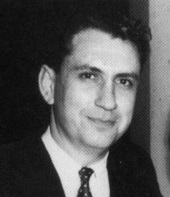
The 1986 United States Senate election in Pennsylvania was held on November 4, 1986. Incumbent Republican U.S. Senator Arlen Specter won re-election to a second term.

The 1980 United States Senate election in Pennsylvania was held on November 4, 1980. Incumbent Republican U.S. Senator Richard Schweiker decided to retire, instead of seeking a third term. Republican nominee Arlen Specter won the open seat, defeating Democratic nominee Peter F. Flaherty.

The 1976 United States Senate election in Pennsylvania was held on November 2, 1976. Incumbent Republican U.S. Senator and Minority Leader Hugh Scott decided to retire. Republican John Heinz won the open seat.

